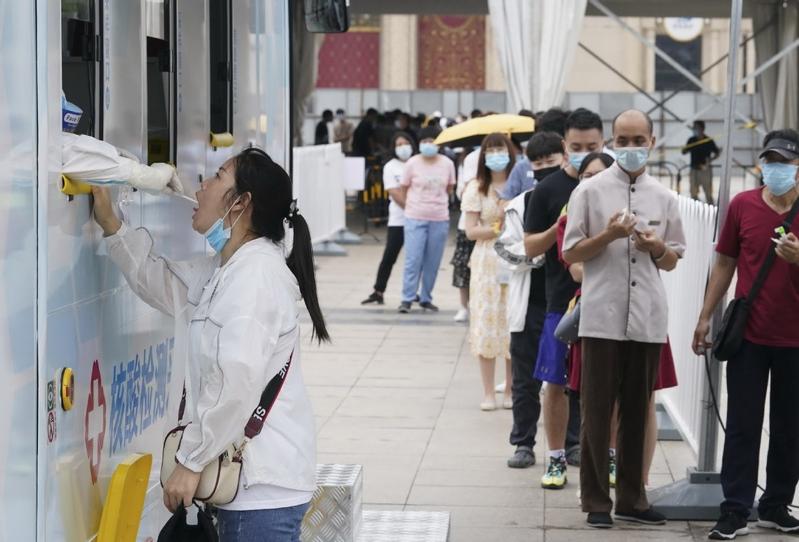Second round of COVID-19 epidemic unlikely in China, experts say
 People wait to provide samples for nucleic acid tests for novel coronavirus in Beijing on June 28, 2020. (FENG YONGBIN / CHINA DAILY)
People wait to provide samples for nucleic acid tests for novel coronavirus in Beijing on June 28, 2020. (FENG YONGBIN / CHINA DAILY)
The recent COVID-19 outbreak in Beijing is a localized and sudden rebound in new infections and has not caused widespread transmission, a leading infectious diseases expert said.
To curb new infections, the capital has taken swift and targeted action, which has provided authorities and medical workers with more experience and has boosted their confidence that the city will avert a second wave, said Zhang Wenhong, director of the department of infectious diseases at Huashan Hospital Affiliated to Fudan University in Shanghai.
“Beijing has set a clear example that China will ward off a new wave of infections — domestic or imported — through prompt and refined epidemic control response. A second round of the epidemic in China is unlikely to occur,” he said during an online webinar held by China Central Television on the night of June 30.
However, Zhang also cautioned that in terms of the global situation, a new wave of infections is likely to have hit some regions or is about to.
“There is a high chance for a second wave globally,” he said.
Beijing detected its first new domestic infection in nearly two months on June 11 and had since reported 328 confirmed cases by June 30. The majority of the infections are tied to the Xinfadi market, a major wholesale food market in Fengtai district.
During the new outbreak, Zhang said, the capital has thoroughly tracked down close contacts of all confirmed infections and clearly mapped out the transmission routes through epidemiological investigations. “Such a targeted disease control approach is a role model for the country’s disease control work and sets a great example,” he said.
As a result, the recent outbreak in Beijing has been contained to a relatively small scope, and the number of new daily infections is trending downward.
“It constitutes a rebound in new cases and does not amount to a second wave of epidemic,” Zhang said.
Tong Zhaohui, vice-president of Beijing Chaoyang Hospital, said during the webinar that Beijing is on track to bring the recent outbreak fully under control and will soon resume normal production and daily activities.
Tong said the conditions of severe and critical cases admitted to Beijing Ditan Hospital were under control. By June 29, Beijing Ditan had received three critical cases and four severe cases during the recent outbreak in the capital.
The first confirmed case, a 52-year-old man praised for his meticulous accounts of movement that helped epidemiologists narrow down the sources of infection, has been transferred to a normal ward from the intensive care unit.
“He will be discharged from the hospital shortly if his test results come back negative,” Tong said.
In Hubei province, the hardest-hit region in China, there have been no new domestic cases for more than 40 days.
Zhang Dingyu, vice-director of the Hubei provincial health commission and president of Wuhan Jinyintan Hospital, said that in Wuhan, the provincial capital, all confirmed infections and asymptomatic cases have been released, but its disease control and prevention efforts are not relaxed.
“Based on the results from the massive testing campaign, the city is very safe, and its night life is now buzzing. But every resident has developed a strong sense of epidemic control and is wearing masks in accordance with the national guideline,” he said.


